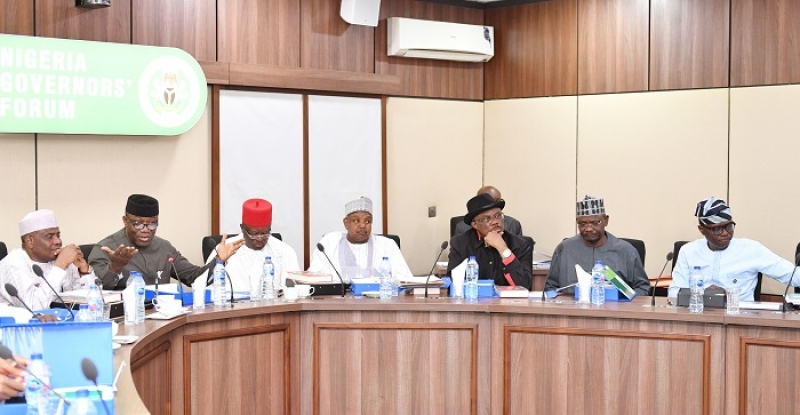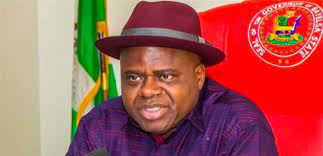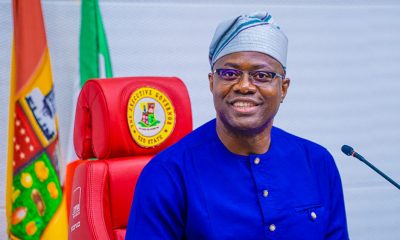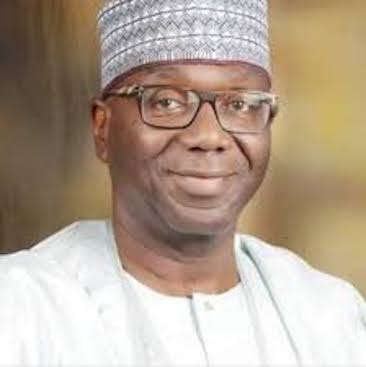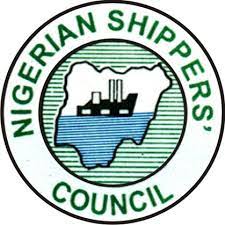COVER
Dwindling Allocation: Salaries, Other Recurrent Items to Suffer – NGF
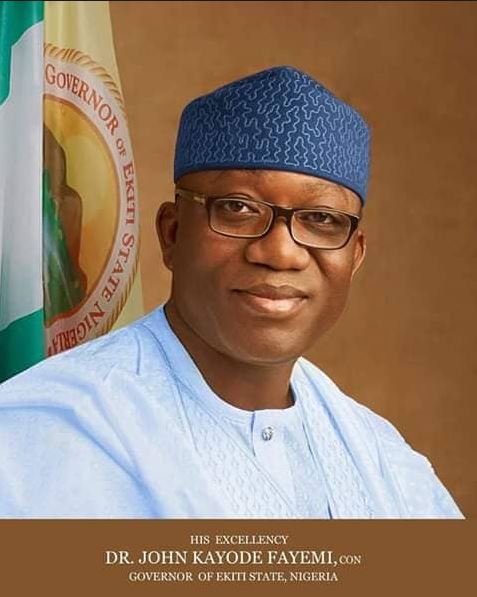
By Joseph Amah, Abuja
The Nigeria Governors’ Forum has lamented that the subsidy on Premium Motor Spirit (petrol), has placed a huge financial burden on the states.
The NGF, which is the umbrella body for the 36 governors of the federation across party lines, made this known in a memo forwarded to the House of Representatives.
The memo is in response to the call for memoranda by the House’ Ad Hoc Committee on the Volume of Fuel Consumed Daily in Nigeria, which is investigating the actual amount of PMS the country consumes daily.
The memo, which was signed by the Head, Legislative Liaison, Peace and Security, NGF, Fatima Usman Katsina, for Chairman of the Forum, was titled ‘Findings on the Volume of Fuel Consumed Daily in Nigeria,’ dated July 1, 2022, and addressed to committee’s Chairman, Abdulkadir Abdullahi.
“Fiscal pressures are growing unsustainably with the PMS subsidy significantly reducing the flow of revenues into the Federation Account. Thirty-five out of 36 states are likely to see transfers from the federation fall (in nominal terms) between 2021 and 2022, with the average decline projected to be about 11 per cent. Most states are already experiencing fiscal stress, with 30 out of 36 states recording fiscal deficits in 2020, including Lagos and every oil-producing state except Akwa Ibom.
“With the projected decline in gross distributable federation revenues in 2022, fiscal deficits and debt burdens will grow even larger and faster. This will mean that transfers from the federation will not be enough to cover even salaries, and certainly not recurrent costs, which are growing in nominal terms.”
The governors referred the House to a November 2021 report by its National Executive Council’s ad hoc committee interfacing with the Nigeria National Petroleum Corporation on the appropriate pricing of PMS in Nigeria, which was chaired by Governor of Kaduna State, Nasir el-Rufai, and had governors of Edo, Jigawa, Ebonyi, Akwa Ibom and Ekiti, as well as the Governor of the Central Bank of Nigeria; Minister of Finance, Budget and National Planning; Accountant-General of the Federation, Group Managing Director of the NNPC and the Permanent Secretary, MBNP.
The memo partly read, “Although the operating environment has significantly worsened since the report was released, with NNPC now consistently reporting zero remittance to the Federation Accountant as profit from joint venture, production sharing contract and miscellaneous operations, the position of the forum remains generally the same.”
The NGF recalled how the report noted that the “federation (FAAC) net oil & gas revenues have been declining since 2019 and are projected to decline significantly in 2022 by between N3bn and up to N4.4bn unless action is taken now.” The memo read, “The following are some of the major findings relating to the volume of fuel consumed in the country:
“Remittances to the Federation Account Allocation Committee have continued to shrink as NNPC recovers shortfall quite arbitrarily from the Federation’s crude oil sales revenue. FAAC deductions for PMS subsidy are above 2019 levels, even without adjusting for reduced purchasing power of the naira due to inflation and FX rate deterioration.
“An analysis of the average monthly PMS consumption by states showed that a third of the country accounts for over 65 per cent consumption of PMS. The analysis showed that the following States of Lagos, Oyo, Ogun, Abuja, Delta, Kano, Kwara, Edo, Rivers, Kaduna, Kebbi and Adamawa accounted for 65 per cent of PMS consumption in the country. Most states with high PMS consumption either have borders with neighbouring countries or are in close proximity, this has been an avenue for smugglers to benefit from profitable arbitrage opportunities in PMS pricing.
“Households directly consume only about 25 per cent of the PMS that is consumed nationally, with the remaining three-quarters being consumed by firms, MDAs, transport operators or smuggled to neighbouring countries where the PMS price is nearly three times what it is in Nigeria; and of the PMS consumed by households, the richest 40 per cent of households account for over three-quarters of the PMS purchased by households, while the poorest 40 per cent of households purchased less than three percent of all PMS sold in Nigeria.
“In the current fiscal regime, remittances to FAAC would continue to shrink as NNPC recovers this shortfall from the Federation as a result of crude oil price recovery.
The report recommended a PMS pricing structure that addresses regional arbitrage and smuggling of PMS and provides additional revenue to the Federation Account. There is a significant market opportunity for additional export revenue streams for Nigeria to be had given the price parity with our neighbouring countries.
“Privatisation of the three government refineries as is, or after their full rehabilitation if affordable and viable, and expediting the licensing procedure for modular refineries will reduce the recurring government expenditure on refinery maintenance and increase the country’s refining capacity.”
The governors also noted that there were also economic risks highlighted in the report. “Fiscal pressures are threatening Nigeria’s recovery, as rising prices continue to push millions into poverty,” they stated.
The memo further read, “Rising prices are pushing millions of Nigerians into poverty. Rising inflation between 2020 and 2021 is expected to have pushed an additional 5-6 million Nigerians into poverty. Food insecurity is increasing in both poor and non-poor households, with some adults skipping meals. Because inflation is high, even if it remains stable, it will continue to push many more Nigerians into poverty.
“With the coming into effect of the Petroleum Industry Act, gross oil & gas revenues could be (much) lower than currently projected because of the new fiscal terms and the earmarking of deductible revenues specified in the PIA, and that could reduce net oil & gas revenues even further.”
The NGF stated that greater accountability and transparency around oil and gas revenues “are the only immediate options for easing the pressure on government finances and maximising socially responsible profit gain.”
N175 Per Litre, Marketers Plan Strike, Queues Worsen
Meanwhile several petrol stations are now dispensing petrol at over N175/litre, higher than the government-approved N165/litre price. This is as oil marketers insist on embarking on strike from next week if the government fails to pay them.
Some outlets in Lagos that sold the commodity at N169/litre last week had to adjust their pumps on Wednesday, as they dispensed PMS to motorists at N175/litre.
Also, queues by motorists at filling stations, which have persisted in Abuja and environs since February this year, gradually resurfaced in parts of Lagos on Wednesday.
Our correspondent also observed that many fuel stations, particularly those belonging to members of the Independent Petroleum Marketers Association of Nigeria, (IPMAN) were shut due to a lack of products to sell to customers.
Gegu Oil, Eterna and Oando stations at the Dutse end of the Kubwa-Zuba Expressway in Abuja, for instance, had remained shut for days for lack of products to sell, despite the heavy queues of motorists in a nearby NNPC retail outlet.
Amidst these concerns, oil marketers under the aegis of Abuja-Suleja IPMAN, stated on Wednesday that their proposed strike would go ahead next week if the government fails to substantially clear the bridging claims for transportation of petrol being owed marketers.
Last week, oil marketers warned that Nigeria could witness “the mother of all queues” soon if the Federal Government fails to pay the 12 months bridging claims being owed operators in the downstream oil sector.
They had also denied being paid N74bn by the Federal Government as bridging claims for the transportation of petroleum products.
The Federal Government through its Nigeria Midstream and Downstream Petroleum Regulatory Authority had said last week that it paid N74bn as bridging claims to oil marketers for the transportation of petroleum products across the country in seven months.
But the Secretary, Abuja-Suleja IPMAN, Mohammed Shuaibu, whose unit covers Abuja, Kogi, Niger and parts of Nasarawa and Kaduna, told our correspondent on Wednesday that though some members had confirmed the receipt of payments, a host of others had yet to receive theirs.
“Few of our members have confirmed receiving alerts, but the majority have not been paid and so the decision to embark on the mother of all strike still stands, except we get our payments,” he stated.
Shuaibu added, “Many independent marketers are closing shop and because of these debts. We cannot continue to fold our hands. We are sorry about the hardship, but the government has to pay us, otherwise we will withdraw our services.”
Reacting to the concerns, the spokesperson, NMDPRA, Kimchi Apollo, earlier told our correspondent that the petrol price had not changed from the approved N165/litre price, as he also stated that efforts were on to settle to bridging claims being owed the marketers.
Meanwhile, there were indications that long queues were beginning to resurface in Lagos State and its environs on Wednesday, as findings showed that filling stations were beginning to sell petrol above N175 per litre.
The Federal Government and oil marketers are yet to come to a compromise on how much a litre of petrol should be sold, and marketers are beginning to sell products at prices not approved by the Nigerian Midstream and Downstream Petroleum Regulatory Authority.
Marketers, however, said they could no longer bank on the Federal Government’s promise to pay the claims, while they continue to run at a loss for selling petrol at N165 per litre.
Marketers had held a similar meeting with the NMDPRA two weeks ago, where they aired their grievances on the high costs of running their petrol stations.
Also, the Depots and Petroleum Products Marketers Association of Nigeria had hinted that it would be impossible for its members to keep prices at N165/litre when the landing costs to their stations were already on the high side.
NLC President Wabba Calls for Fixing of Refineries, Subsidy Removal
As a solution, the President of Nigeria Labour Congress (NLC), Ayuba Wabba has told the federal government to fix the nation’s refineries and get rid of subsidy payments.
He also advocated the participation of private investors in building refineries adding that importation of fuel poses threats to the country.
Wabba revealed these in a presentation made to the House of Representatives ad hoc committee investigating daily PMS consumption in the country.
According to the Labour leader: “We do believe that even if there is subsidy, it cannot be at the level quoted by authorities in the sector. In our document on the oil sector, we have outlined conditions precedent for removing subsidies, if any, including fixing the refineries, creating conditions for private sector participation in the building of refineries, even if they are modular.
“Sadly, we are not aware if any of the terms and conditions we have recommended have been met, several years after. We are nonetheless conscious of the fact that the continuous opaque importation of PMS holds clear and present danger to the country.
“On the other hand, the transparent operation of the importation of PMS has two major advantages. The first advantage is that, knowing the exact volume of PMS the country needs and publicising it will deter further falsification of imports, hopefully,” Wabba said.
COVER
Veritas Kapital Records N13.6bn Premium in 2025
Veritas Kapital Assurance Plc has reported an eight percent rise in Gross Written Premium to N13.6 billion in the first half of the year.Managing Director of Veritas Kapital Assurance, Dr. Adaobi Nwakuche disclosed this in a statement on Wednesday in Lagos.Nwakuche said the performance reflected strong market presence and effective distribution channels.
She noted that Net Insurance and Investment Income surged by 244 per cent to N5. 2 billion, from N1.52 billion recorded in the full year 2024.According to her, Profit After Tax reached N3.2 billion, already surpassing the company’s total earnings for the full year 2024.“These results affirm the strength of our values-driven model, built on our people’s dedication, a clear strategy, and unwavering focus on customer value,” she said.Nwakuche said Total Assets rose by 11 per cent to N37 billion from N33.1 billion in 2024, showing improved financial health and operational efficiency.She added that shareholders’ funds increased to N15.1 billion from N11.92 billion in 2024, underscoring investor confidence and sound governance.“This performance is the result of disciplined underwriting, investment optimisation, expanded digital capabilities, and strong customer-focused service delivery.“The H1 2025 results go beyond growth. They show Veritas Kapital’s evolving role as a partner in progress, delivering solutions relevant to individuals, businesses, and communities. “Each figure tells a story of protection delivered, promises honoured, and futures secured. We are building trust, not merely growing profits,” Nwakuche said.She added that as Nigeria adapts to new economic realities, Veritas Kapital is charting a course defined by agility, innovation, and intentionality.The company, she said, is investing in digital access, claims responsiveness, and talent development, while reinforcing its core values of integrity, transparency, and service.COVER
FG Disburses N5.12bn Pension Arrears to 90,689 DBS Pensioners
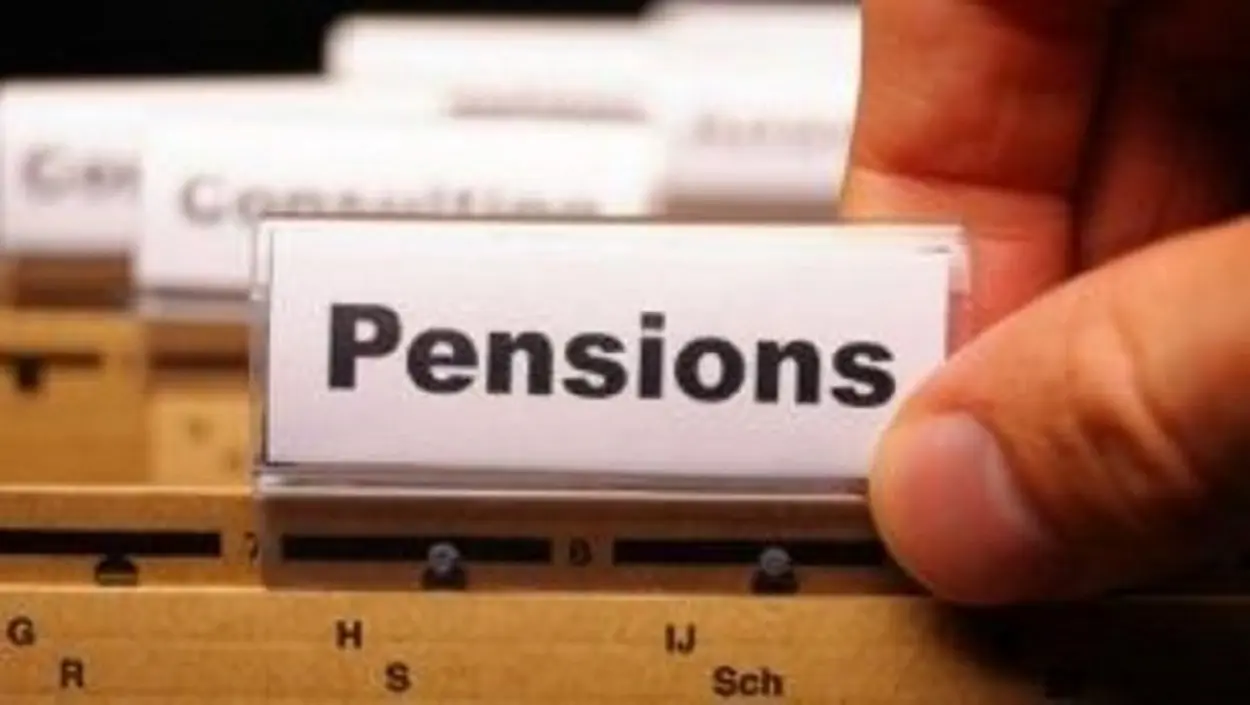
By Tony Obiechina, Abuja
The Federal Government has released funds for the disbursement of N5.12 billion in pension arrears to 90,689 Defined Benefit Scheme (DBS) pensioners under the Pension Transitional Arrangement Directorate.This was contained in a statement by the Head of Corporate Communications of PTAD, Olugbenga Ajayi.
He said that the directorate had finalised the disbursement of the money. The Nigeria Customs Service, the Nigeria Immigration Service, and Prisons Pension Department (CIPPD) pensioners are 8,626, received N276,032, for one-month arrears; the Police, Pension Department (PPD) pensioners are 9,681, received N619,584, for two months as arrears. The Civil Service Pension Department (CSPD) pensioners are 12,773, received N408,736, for one-month arrears, and the Parastatals Pension Department (PAPD) pensioners are 59,609, received N3,814,He said that the payment reaffirms the administration’s commitment to ensuring that pensioners receive their due entitlements in line with the Renewed Hope Agenda of President Bola TinubuAccording to the statement, the approvals align with the President’s Renewed Hope Agenda.“This move shows President Tinubu’s strong commitment to senior citizens’ welfare and marks a new era in DBS pension management,” said PTAD, Executive Secretary, Tolulope Odunaiya.Among the key measures is the immediate implementation of an extra budgetary allocation to enforce new pension rates for DBS pensioners.The President also endorsed the adoption of a proposed pension harmonisation policy, which will be incorporated into the 2026 pension budget. Additionally, health insurance coverage for all DBS pensioners has been approved, ensuring access to essential healthcare services.The proposed reforms include a new pension rate of N32,000 and incremental increases of 10.66% and 12.95% for pensioners from defunct and privatised agencies. Other components of the reform package include harmonisation of pension rates across all DBS pensioners and their enrolment into the National Health Insurance Scheme (NHIS).In June, PTAD announced the successful disbursement of N8.6 billion in pension arrears to 148,625 eligible DBS pensioners across various sectors. The payments reflect the implementation of the N32,000 pension increment approved by President Tinubu in 2024.PTAD had previously settled arrears related to the first pension increment of 20% to 28%, which came into effect in January 2024.COVER
NAF Offensive Decimates 592 Terrorists, Destroys 372 Assets in Eight Months

By David Torough, Abuja
The Nigerian Air Force (NAF) has killed no fewer than 592 terrorists and destroyed 372 enemy assets in Borno within the last eight months, surpassing the total operational gains recorded in 2024.A statement by NAF’s spokesman, Air Commodore Ehimen Ejodame yesterday said the Chief of the Air Staff (CAS), Air Marshal Hasan Abubakar, said this during a courtesy visit to Gov.
Babagana Zulum of Borno. Abubakar said the offensive had destroyed 206 technical vehicles and 166 logistics hubs in deep hostile territory, with coordinated day-and-night strikes from Gonori to Rann, Dikwa to Damboa, Azir to Mallam Fatori.He said the offensive had been boosted by the deployment of A-29 Super Tucano aircraft capable of precision and night missions, Mi-171 helicopters for medical evacuation and logistics, and enhanced intelligence, surveillance and reconnaissance platforms for round-the-clock target tracking.He added that a new Mi-35 gunship was expected to further intensify close-air support for ground troops in the theatre.“Backed by an upgraded fleet and precision night-strike capabilities, NAF aircraft executed 798 combat sorties, clocking over 1,500 operational flight hours in the Air Component of Operation Hadin Kai.“This year, our air war is faster, sharper, and more surgical.“We are taking out high-value targets, crippling their logistics, and hunting down every cell that threatens the peace of the North-East,” he said.The CAS also praised the “Borno Model” of combining community-driven non-kinetic measures with decisive military action, saying it had proven effective in the counter-insurgency campaign.He also inspected facilities at the NAF Base, met with aircrew and ground personnel, and received operational briefings.He reaffirmed the NAF’s commitment to precision air power, intelligence-led operations, and inter-agency collaboration to protect Nigerians.In his response, Gov. Zulum praised the NAF for its sustained air support in degrading terrorist capabilities and protecting communities.According to him, the NAF has been a steadfast partner in their fight against insurgency.“Your operations have saved countless lives and allowed our communities to begin rebuilding.“The people of Borno recognise your sacrifices and stand firmly behind you,” he said.
